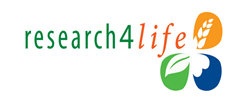Optimizing Segregated Waste Collection Routes as a Decision-Making Problem in the Municipal Solid Waste Management System in Small Town
DOI:
https://doi.org/10.15330/jpnu.10.4.6-16Keywords:
municipal solid waste management, recyclables collection, route optimization, travelling salesperson problem, sustainable transport, sustainable development, circular economyAbstract
Routing vehicles is a generic decision-making problem of strategic management in any business serving customers in distributed locations with a limited fleet including municipal solid waste collection. This paper introduces an approach tailored for optimizing waste collection routes in small towns and rural areas where dead-end streets are typical in the road network. Leveraging the Traveling Salesperson Problem (TSP), the approach employs optimal route determination taking advantage of the specific character of a road network with many dead-end streets. The service area for waste collection was aggregated, so the graph representing the map results in a relatively small data instance. This facilitated the application of the exact method, i.e. Mixed-Integer Programming using the OpenSolver tool in Excel. Conducted in collaboration with a municipal agency in southeastern Poland, this study outlines a comprehensive methodology, emphasizing the reduction of complex dead-end streets into singular nodes within the graph for effective route optimization. A comprehensive methodology is outlined alongside the solutions attained. Computational experiments focused on minimizing total travel distance during waste collection operations, demonstrating the methodology's success. Beyond efficiency gains, optimized routes hold potential for significant environmental impact reduction. The reduced travel distances result in decreased fuel consumption and emissions, aligning with sustainability goals. Developing an Excel-based decision support tool for municipal solid waste management is a significant contribution, particularly for decision-makers less familiar with Operations Research. The tool's compatibility within the spreadsheet environment streamlines waste management processes for municipal units, enhancing decision-making efficiency in optimizing waste collection routes.










